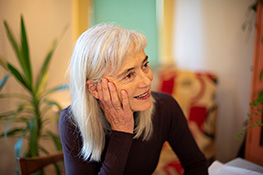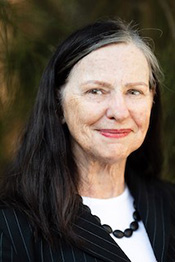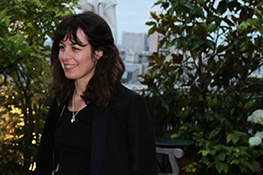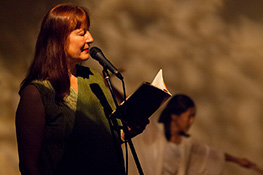Information (254)
Children categories
Thanking our Partners (14)
Australian Book Review is assisted by the Australian Government through Creative Australia, its principal arts investment and advisory body, and is also supported by the South Australian Government through Arts South Australia. We also acknowledge the generous support of our university partner, Monash University; and we are grateful for the support of the Copyright Agency Cultural Fund, Good Business Foundation (an initiative of Peter McMullin AM), the Sidney Myer Fund, Australian Communities Foundation, Sydney Community Foundation, AustLit, Readings, our travel partner Academy Travel, the City of Melbourne, and Arnold Bloch Leibler.
View items...Index for 1996: Nos 178-187
1996 Australian Book Review Index
PDF: Page 1 of Index for 1996: Nos 178-187
PDF: Page 2 of Index for 1996: Nos 178-187
PDF: Page 3 of Index for 1996: Nos 178-187
PDF: Page 4 of Index for 1996: Nos 178-187
PDF: Page 5 of Index for 1996: Nos 178-187
PDF: Page 6 of Index for 1996: Nos 178-187
Index for 1999: Nos 208-217
1999 Australian Book Review Index
PDF: Page 1 of Index for 1999: Nos 208-217
PDF: Page 2 of Index for 1999: Nos 208-217
PDF: Page 3 of Index for 1999: Nos 208-217
PDF: Page 4 of Index for 1999: Nos 208-217
Recruitment
ABR Peter Rose Editorial Cadet
Australian Book Review (ABR) is delighted to launch the Peter Rose Editorial Cadetship to honour Peter Rose’s extraordinary contribution to the training of publishing professionals during his quarter century at ABR and to extend this tradition of mentorship into ABR’s exciting next phase. The Peter Rose Editorial Cadetship is generously supported by ABR’s Patrons.
Founded in 1961, ABR is Australia’s premier literary magazine. It is an independent, not-for-profit monthly magazine, governed by an independent Board, managed by a small, skilled editorial and management team, and committed to the publication and promotion of creative and critical writing of the highest standard.
Georgina Arnott is the Editor and CEO and Sarah Holland-Batt is Chairperson of the Board.
ABR publishes reviews, essays, commentaries, interviews and new creative writing. The magazine is national and increasingly international in readership, authorship, distribution, events and partners. It is available in print and online.
About the role
The Cadetship is a part-time (0.8 FTE), twelve-month position, commencing in late July or early August. The Cadet will be paid at $60,000, pro rata, and receive superannuation at 12% of their salary. There is an option for this role to be performed full time if the candidate possesses the requisite interest and experience in philanthropic and development work.
The Cadet will join the magazine at a dynamic time in its long history and will be part of a small, hard-working team committed to publishing high-quality literary journalism and creative writing. Digital publishing will be a priority for the Cadet.
The Cadet will report to the Editor, Georgina Arnott, and will work in the ABR office in Southbank, Melbourne. Key responsibilities will include digital publishing, the ABR Podcast, social media, and editing and proofreading. There is much scope for making a diverse creative contribution to the magazine.
Applicants must have proficiency in digital technology. Experience in the publishing/magazine/media sector would be an advantage. Applicants must demonstrate familiarity with ABR (its content, style, and ethos). We also look for candidates with knowledge of, and interest in, literature and the arts.
Applicants must have an unrestricted right to work in Australia.
The successful candidate must have completed a university degree or diploma in at least one of the following disciplines: Arts, Journalism, Publishing & Editing, Media & Communication, or possess relevant working experience.
Responsibilities will include:
- Editing and proofreading
- Publishing content on the ABR website
- Assisting with social media
- Managing the ABR Podcast
- Assisting with ABR Arts
- Helping to attract paid advertisements
- Some administrative duties
Optional responsibilities for this role to be performed in a full-time capacity:
- Philanthropic and development administration
Key criteria:
The successful candidate will possess the following attributes:
- An interest in and knowledge of books, writing, the arts, and ideas, and a passion for strengthening cultural criticism and public conversations
- Excellent writing and/or editing skills and a commitment to developing these further
- Strong organisational skills, attention to detail, and an ability to work across a range of varied tasks in a busy office environment
- Experience with software including Adobe suite (InDesign, Photoshop), Microsoft Office (Word, Excel, Outlook), CMS software (Joomla or others)
- Proven ability to work independently and respond effectively to direction
- Strong interpersonal and communication skills, and the proven capacity to work collaboratively in a small team
- Familiarity with engagement through the strategic use of social media, advertising, and EDMs, and a capacity to perform these tasks diligently and proficiently
- Eagerness to extend ABR’s advertising client base
- A familiarity with Australian Book Review and its operations
Optional:
- An understanding of and commitment to ABR’s patrons, private and government funding programs, and a capacity to perform administration to support these programs with accuracy, sensitivity, and high levels of professionalism
ABR welcomes all applicants. If you do not possess all the attributes listed here but think you could bring relevant skills and capacities to ABR, please consider applying. ABR is committed to maintaining an inclusive, respectful, positive, and effective workplace.
Applicants should address the nine key criteria (and, if relevant, the optional tenth criterion), state why they would like to work for ABR, and include a resume with contacts details for at least two referees and a sample of their writing. Please send your application to ABR Editor Georgina Arnott at This email address is being protected from spambots. You need JavaScript enabled to view it. with the subject line ‘ABR Editorial Cadetship Application’ by 6pm on Monday 21 July.
Office Administrator and Bookkeeper
Australian Book Review (ABR) seeks an Office Administrator and Bookkeeper. Founded in 1961, ABR is Australia’s premier literary magazine. It is an independent, not-for-profit monthly magazine, governed by an independent Board, managed by a small, skilled editorial and management team, and committed to the publication and promotion of creative and critical writing of the highest standard.
Georgina Arnott is the Editor and CEO and Sarah Holland-Batt is Chairperson of the Board.
ABR publishes reviews, essays, commentaries, interviews, and new creative writing. The magazine is national and increasingly international in readership, authorship, distribution, events and partners. It is available in print and online.
About the role
ABR is seeking an experienced Office Administrator and Bookkeeper for 3-4 days per week.
The successful candidate will be paid at between $70,000 – $80,000, pro rata, depending on experience. In addition, they will receive superannuation at 12% of their salary.
This role will be performed on the premises, although there may be some flexibility for remote work from time to time. ABR is based in Southbank, Victoria.
Applicants must have an unrestricted right to work in Australia.
The successful candidate will possess strong financial and business literacy, excellent communication and interpersonal skills, and be conscientious, hard-working, diplomatic, and highly organised. The primary functions of the role are maintaining ABR’s databases and accounts.
These tasks require attention to detail, personal integrity, and a firm grasp of accounting principles. This is a diverse and stimulating role, working in a small team, but also entailing broad engagement with stakeholders including contributors, editors, interns, subscribers and donors. Some understanding of the cultural environment in which ABR operates would be advantageous.
The Office Administrator and Bookkeeper reports to ABR’s Editor and CEO and will work with ABR’s Treasurer when required.
Key tasks:
- Maintain accurate financial records and manage daily bookkeeping
- Handle accounts payable and receivable, including invoicing, supplier payments, and receipts
- Respond to phone and email enquiries
- Reconcile bank accounts and financial statements
- Process payroll, including superannuation, tax and leave entitlements
- General ledger maintenance
- Update and maintain spreadsheets and databases to support invoicing, staff and contributor payments, and subscriptions
- Prepare up-to-date subscription lists on a monthly basis
- Contribute to the development of orangisational financial documents, including an annual budget and quarterly financial reports
- Provide administrative support as needed, including with partner organisations
- Ensure compliance with all relevant accounting standards, tax regulations and other statutory requirements
- Collaborate effectively with internal team members and external stakeholders while working independently
Key criteria:
- Proven experience in bookkeeping and accounts management (experience with Xero or Reckon would be advantagenous but is not essential), including invoicing and financial reporting;
- Strong attention to detail and excellent numerical, analytical and organisational skills;
- Strong understanding of financial compliance, BAS, super, and payroll;
- Excellent communication and interpersonal skills, and a polite and professional manner when responding to phone calls and dealing with stakeholders;
- Proven ability to work independently and respond effectively to direction;
- A capacity and interest in working collaboratively across a small team;
- Eagerness to improve systems, including through the adoption and integration of new software platforms; and
- Proficiency in the Microsoft Office suite.
Desirable but not essential:
- A familiarity with Australian Book Review, or previous experience in the arts or media sectors; or
- Prior experience working in the non-for-profit sector.
ABR welcomes all applicants. If you do not possess all the attributes listed here but think you could bring relevant skills and capacities to ABR, please consider applying. ABR is committed to maintaining an inclusive, respectful, positive, and effective workplace. Applicants should address the key criteria, state why they would like to work for ABR, and include a resume with contacts details for at least two referees. Please send your application to ABR Editor Georgina Arnott at This email address is being protected from spambots. You need JavaScript enabled to view it. with the subject line ‘ABR Office Administrator and Bookkeeper’ by 6pm on Monday 14 July.
ABR Fellowships - FAQ
What is the ABR Fellowship program?
ABR Fellowships are intended to reward outstanding Australian writers, to enhance ABR through the publication of long-form journalism, and to advance the magazine’s commitment to ideas and critical debate. The Fellow will work closely with the Editor of ABR. The chosen Fellow will contribute three review essays and/or commentaries in the field of Australia history and culture. ABR will publish these articles in print and online. Each article will run from 1500 to 2000 words. The articles (agreed on with the ABR Editor) will be staggered over twelve months.
Who can apply for an Inglis Fellowship?
Any writer aged thirty-five and under is eligible to apply: scholars, academics, journalists, commentators, creative writers, etc. Applicants must be Australian citizens or have permanent resident status in Australia. ABR staff and board members are ineligible. Contributors to the magazine are encouraged to apply. We welcome applications from First Nations writers and those with diverse backgrounds.
Who can apply for a Science Fellowship?
Any writer is eligible to apply: scientists, scholars, academics, journalists, commentators, creative writers, etc. Applicants must be Australian citizens or have permanent resident status in Australia. ABR staff and board members are ineligible. Contributors to the magazine are encouraged to apply. We welcome applications from First Nations writers and those with diverse backgrounds.
How much are the Fellowships worth?
The Fellow will receive a total of $5,000.
I don’t know anything about ABR. May I still apply?
Applicants must demonstrate real familiarity with the magazine and convince the panel that their article would complement other writings in ABR and win us new readers. Applications that do not refer to the magazine, or demonstrate any awareness of ABR’s own needs and directions, are unlikely to be successful.
Are the Fellowships themed?
The ABR Inglis Fellow will contribute articles in the field of Australia history and culture. The ABR Science Fellow will contribute three reviews essays or commentaries over twelve months in the field of science and/or the history of science. This reflects the breadth of ABR’s interests and content.
Is it possible to write the article with a friend or colleague?
No. Single-author works only.
Is ABR looking for academic papers?
No. ABR is not an academic journal. We seek engaging literary journalism of the kind you will find in The New Yorker or the London Review of Books. Links to essays by past Fellows can be found here.
Are you looking for finished articles from applicants?
No. We seek cogent proposals for articles to be developed over the course of the Fellowship, in collaboration with the Editor. Unlike the Calibre Essay Prize, the Fellowship program is not for finished works.
How do I apply?
Applicants must read the guidelines of the Fellowship for which they are interested in applying and send us a succinct but comprehensive proposal (two pages maximum), plus a CV of no more than two pages. Note that we are looking for proposals – not finished articles or chapters. Applications must be received by the closing date of the relevant Fellowship. There is no application fee. Applicants are strongly encouraged to discuss their proposals with the Editor before submitting them: (03) 9699 8822 or This email address is being protected from spambots. You need JavaScript enabled to view it.
How are Fellows selected?
The Fellowship will be awarded by Australian Book Review on the advice of a committee including the Editor of ABR. No correspondence will be entered into once the decision has been announced. ABR reserves the right not to award a Fellowship during a particular round.
Are the ABR Fellows expected to complete their projects at the ABR office in Melbourne?
No. Most of the editorial contact is via email or the telephone. Some meetings may be desirable during the course of the Fellowship. These are important collaborative partnerships between the magazine and the Fellows.
What kind of editorial support do Fellows enjoy?
We edit promptly, closely, and respectfully. ABR is committed to presenting the Fellow’s work in the best-possible form. The Editor is always available to discuss the project, to respond to ideas, and to read drafts. Georgina Arnott edits the articles in consultation with the Fellows, and each article is then proofread by at least three editors.
Where are the Fellowship articles published?
In the print and digital editions of ABR.
Would I be required to take part in the promotion of the published article?
Yes.
Current Fellowships - Science
The ABR Science Fellowship
Judging is now underway for the 2025 ABR Science Fellowship. ABR hopes to announce the fellow in the July issue.
The ABR Science Fellowship offers a unique opportunity to make a substantial contribution to the magazine in the area of science writing. The fellowship is intended to advance the careers of science writers and to augment ABR’s coverage of science and the history of science. The chosen Fellow will be able communicate sophisticated ideas in lucid and engaging language for a general audience.
What will the ABR Science Fellow contribute?
The Fellow will contribute three reviews essays or commentaries over twelve months in the field of science and/or the history of science. We expect that the Fellowship will become a regular program, complementing the ABR Fellowships, of which we have offered about 25 since 2001.
What will the ABR Science Fellow receive?
The Fellow will receive a total of $5,000, in three instalments, and will work closely with the ABR Editor, Georgina Arnott.
Who can apply?
Any writer is eligible to apply: scientists, scholars, academics, journalists, commentators, creative writers, etc. Applicants must be Australian citizens or have permanent resident status in Australia. ABR staff and board members are ineligible. Contributors to the magazine are encouraged to apply. We welcome applications from First Nations writers and those with diverse backgrounds.
How to apply?
Applicants are strongly encouraged to refer to the Frequently Asked Questions on our website. Applicants may wish to discuss their proposals with the Editor before finalising them: This email address is being protected from spambots. You need JavaScript enabled to view it.
The application should comprise a proposal of two pages plus a short CV. Applicants should summarise the following:- their interest in the magazine and its direction;
- how their contributions will advance ABR and attract new readers;
- the likely nature/scope/genre of the three articles. (We are mindful that the Fellowship may evolve throughout the year.)
Applicants should also attach two examples of their literary journalism. Applications must be emailed to This email address is being protected from spambots. You need JavaScript enabled to view it. by 5 pm on 20 January 2025 (AEDT). There is no application fee.
Familiarity with ABR
Applicants must demonstrate considerable familiarity with ABR – its style, its content, its direction. Visit our website to subscribe to print and/or digital.
Selection process
ABR Editor Georgina Arnott will choose the Fellow with legendary science broadcaster Robyn Williams, who has hosted The Science Show on ABC Radio National since 1975. We expect to name the Fellow within four weeks of closure. No correspondence will be entered into once the decision has been announced. ABR reserves the right not to award a Fellowship in a particular round.
How can I find out about past ABR Fellowships?
Information about the previous Fellowships is available here.The ABR Science Fellowship is supported by a bequest from Dr Ann Moyal AM (1926-2019), a historian noted for her work in the history of science.
Additional Info
-
Sponsor Logo
.jpg)
- Sponsor Website https://www.readings.com.au/
Status: Closed for entries, winner announced.
Total Prize money: $10,000
Dates: 28 October 2024 – 28 January 2025, 11:59 pm AEST
Judges: Georgina Arnott, Theodore Ell, and Geordie Williamson
Australian Book Review is delighted to announce that Jeanette Mrozinski has won the 2025 Calibre Essay Prize for her essay, ‘Eucharist’, becoming the first American writer to win the prestigious award. Now in its nineteenth year, the Calibre Essay Prize is well established as one of the world’s leading prizes for an unpublished essay. Judges Georgina Arnott (new Editor and CEO of ABR), Theodore Ell (2021 Calibre winner), and Geordie Williamson (Deputy Chair of ABR) chose ‘Eucharist’ from a field of 648 entries from 26 countries. This year’s runner-up is ‘The Chirp/The Scream’, by Melbourne writer Natasha Sholl (who was also runner-up in 2024), and third prize goes to South Australia-based writer Robin Boord for ‘Consolation of Clouds’. Andra Putnis was commended for her essay ‘The Art and Atrocity of Disaster Scenarios’. The winning essay is published today in the May issue of ABR, and the second and third-prize-winning essays will appear in the subsequent two issues.
The judges said this about Mrozinski’s winning essay:
‘Eucharist’, an essay of breathtaking emotional power and moral force, conveys a woman’s quest to obtain an anti-viral drug within seventy two hours of being raped to avert the risk of contracting HIV. As the crucial minutes tick away and our protagonist rushes to yet another pharmacy, we observe the grim realities of America’s health system for those facing hard choices around unaffordable, unattainable pharmaceuticals. The essay depicts ordinary, everyday distress in today’s America.
On winning the Calibre Essay Prize, Jeanette Mrozinski said:
Often, the working-class stories that make it into our literature are treated as outsider art, their value appraised by their shocking degrees of desperation and humiliation that, for millions, is simply the chronic dramatic tension of everyday survival. Our world is increasingly ruled by autocrats and oligarchs. We face interconnected democratic, economic, and environmental crises that transcend international borders, threatening to make life harder for us all. In this desperate hour, I am truly honoured to be selected as the first American to win the Calibre Essay Prize, and so deeply heartened to know that ABR readers are engaging with this story of individual and collective action.
The judges said this of the other prize-winning and commended essays:
Runner-up
‘The Chirp / The Scream’ by Natasha Sholl from Victoria is a controlled study of violence and its chaotic aftermath. In the way a film-maker might rewind and edit a scene, ‘The Chirp / The Scream’ performs the brilliant technical feat of replaying and revising a single experience, questioning every detail, realising what must and must not be true at every repetition, and gradually substituting the relevant facts one detail at a time – even while an unconscious insistence on the wrong version impinges on the conscious mind and the apparently correct version. All at once, this essay describes a vicious crime, recounts how the criminal was pursued, reflects on the ripples of the event decades later, and creates a dramatic tension between fact, memory and feeling.
Third place
‘Consolation of Clouds’ by Robin Boord from South Australia conveys the mystery surrounding the death of woman’s father, a pilot in the Korean War who died unexpectedly at home after a mechanical failure on a training flight. Boord writes in poetic prose that creates narrative movement through a gradual succession of images connected by the recurring motif of sliding, strange, penetrable clouds. ‘Nice cloud,’ observes an aunt as they watch a slide show of the pilot’s images. The essay hints at the troubling prospect that more happened to him than was officially recorded, but also, with great evocative skill, implies the depth of loss beneath family scenes that seem at first a picture of stoicism and good humour. Boord’s descriptions of a household of relatives cooking and catering their way out of poverty, and enjoying cloud photography on the kitchen wall, are especially poignant.
Commended
The judges commended ‘The Art and Atrocity of Disaster Scenarios – A Family Tale’ by Andra Putnis from the Australian Capital Territory. This essay contemplates the real possibility that as the climate changes and international tensions rise, even in the Australian refuge of suburbia we may soon no longer presume ourselves safe. The essay recounts a conversation between the protagonist and her partner about how their family might survive a catastrophe, a playful thought experiment that quickly darkens. Uniquely, this essay subordinates the sense of menace to a trustful dialogue in which challenges are posed lovingly and met thoughtfully, suggesting that for all that is wrong in the world, much else remains right.
Of the overall field, the judges said:
Memoirs were strongly represented this year. The judges observed an impulse to distil baffling and traumatic change in the political and social spheres – climate change, war, imperilled democracies, the rise of right-wing populism – into terms that might reconcile overpowering historical forces with events and feelings closer to personal experience. Personal misfortune and its often-traumatic effects were present in compelling essays about illness, loss, grief, accident, and betrayal. Even in the darkest situations and the bleakest arguments, there lingered an implicit belief that in personal expression there was hope.
The personal dimension was intrinsic even to those essays in which personal experience was not a principal subject. Seldom did authors seek extreme objectivity and exclude themselves from their arguments. The essay at its best moves seamlessly between the public and private realms, between the larger world and felt experience. The essays that reached the shortlist involved their authors and invited the reader to observe the complex dance between thinking and feeling that makes good writing.
The shortlist for the 2025 Calibre Essay Prize is as follows (in alphabetical order by essayist):
Anneke Bender (USA) | ‘Tracing Threads’
Robin Boord (SA) | ‘Consolation of Clouds’ (Third)
Chris Ellinger (Vic) | ‘Inner World Supertramp’
Kate Fullagar (ACT) | ‘The Painting’
Adam Gottschalk (ACT) | ‘Empty Chairs at Full Tables’
Taralyn Honson (UK) | ‘Sick Enough’
Kelly Ana Morey (NZ) | ‘Biography’
Jeanette Mrozinski (USA) | ‘Eucharist’ (Winner)
Andra Putnis (ACT) | ‘The Art and Atrocity of Disaster Scenarios’ (Commended)
Natasha Sholl (Vic) | ‘The Chirp/The Scream’ (Second)
Sarah Walker (Vic) | ‘Piscine’
Dominic Warshaw (USA) | ‘Grafting Figs’
Past winners
Click the link for more information about past winners and to read their essays.
FAQs and Terms and Conditions
Please read our Frequently Asked Questions before contacting us with queries about the Calibre Prize.
Before entering the Calibre Essay Prize, all entrants must read the Terms and Conditions.
Exclusivity
Entries may be submitted elsewhere during the judging of the Calibre Prize. If the essay(s) are longlisted by ABR, the entrant will have 24 hours to decide if they wish to withdraw their essay elsewhere or from the Calibre Prize. Exclusivity is essential for longlisted essays, and we require confirmation of such for all longlisted essays.
The overall winning essay will be published in the first half of 2025, followed by the runners-up.
Entry fees
Current ABR subscribers: $20
Standard/non subscribers: $30*
*All non-subscribers will automatically receive four-month digital access to ABR free of charge.
Entry + subscription bundles
Entry + 1-year digital subscription: $100
Entry + 1-year print subscription (Australia): $130
Entry + 1-year print subscription (NZ and Asia): $220
Entry + 1-year print subscription (Rest of World): $240
Those who purchase a subscription while entering will be able to submit subsequent entries at the subscriber rate ($20).
ABR thanks founding Patrons Mary-Ruth Sindrey and Peter McLennan for their continuing support for the Calibre Essay Prize.
2025 Calibre Essay Prize Judges
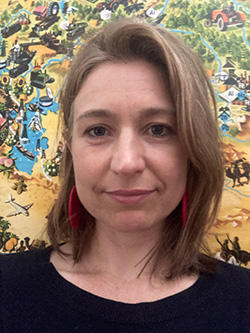 Georgina Arnott has been Assistant Editor at Australian Book Review since 2022. She is the author of The Unknown Judith Wright (UWAP, 2016), shortlisted for the National Biography Award, Judith Wright: Selected Writings (La Trobe University Press, 2022), and numerous book chapters, essays, and articles in the field of Australian literary studies, history and biography. Georgina is a former judge of the National Biography Award (2018, 2019), an ABC Top 5 Humanities Scholar (2021), and a Rockefeller Archive Center fellow (2024).
Georgina Arnott has been Assistant Editor at Australian Book Review since 2022. She is the author of The Unknown Judith Wright (UWAP, 2016), shortlisted for the National Biography Award, Judith Wright: Selected Writings (La Trobe University Press, 2022), and numerous book chapters, essays, and articles in the field of Australian literary studies, history and biography. Georgina is a former judge of the National Biography Award (2018, 2019), an ABC Top 5 Humanities Scholar (2021), and a Rockefeller Archive Center fellow (2024).
 Theodore Ell is an honorary lecturer in literature at ANU. He won the 2021 Calibre Essay Prize for ‘Façades of Lebanon’, an essay about surviving the Beirut port explosion of 2020, and his memoir of revolution and crisis in Beirut, Lebanon Days, was published in July 2024. His poetry collection Beginning in Sight shared the Anne Elder Award in 2022. Theodore's essays and poetry have been published in Australia, the UK, Italy and Lebanon. He lives in Canberra.
Theodore Ell is an honorary lecturer in literature at ANU. He won the 2021 Calibre Essay Prize for ‘Façades of Lebanon’, an essay about surviving the Beirut port explosion of 2020, and his memoir of revolution and crisis in Beirut, Lebanon Days, was published in July 2024. His poetry collection Beginning in Sight shared the Anne Elder Award in 2022. Theodore's essays and poetry have been published in Australia, the UK, Italy and Lebanon. He lives in Canberra.
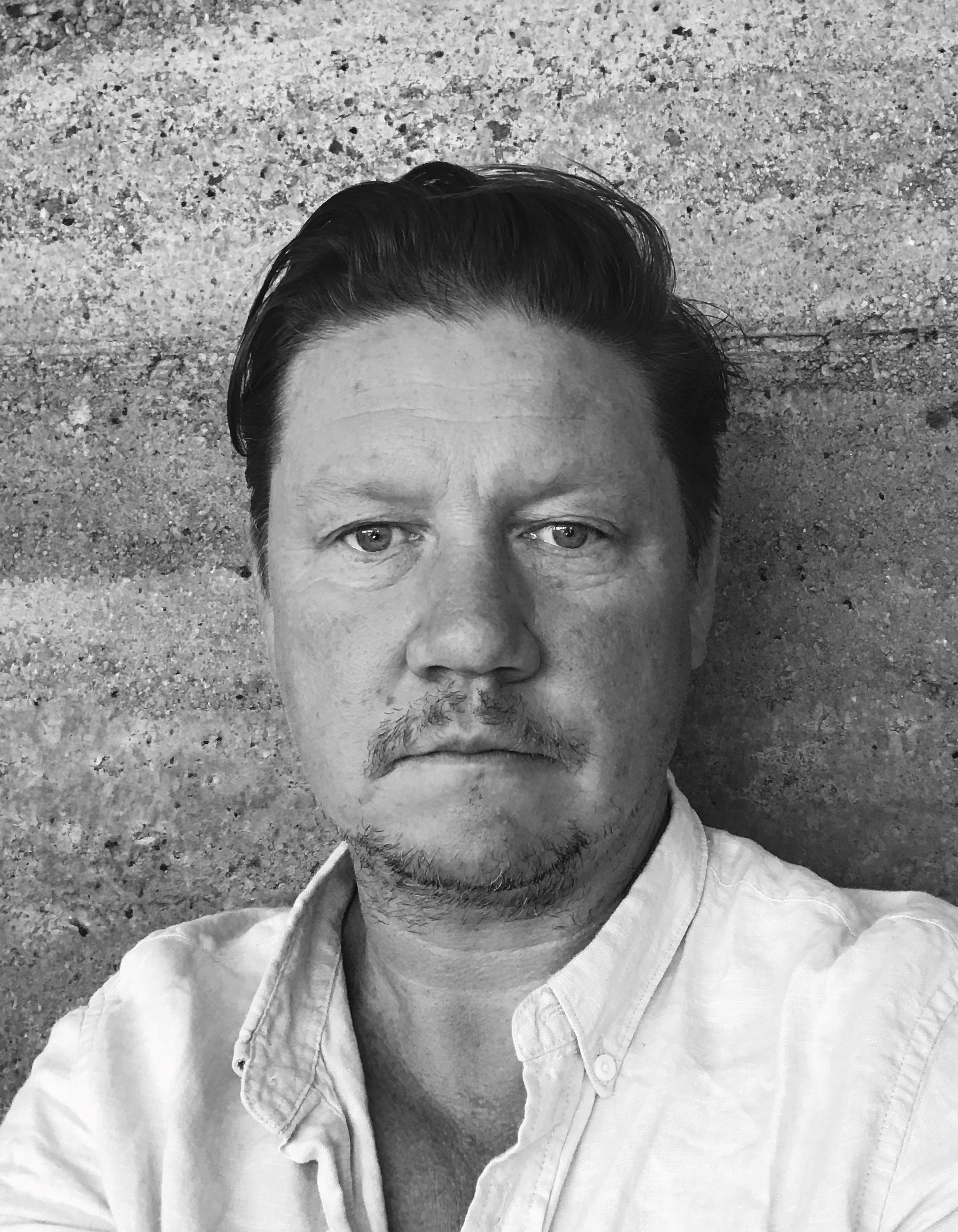 Geordie Williamson has worked as a critic for a quarter of a century. He won the Pascall prize for arts criticism, edited Best Australian Essays, published a book, The Burning Library, on neglected figures from Ozlit, edited Tasmania's Island magazine, and has been Chief literary critic of The Australian since 2008. Latterly he has worked as a publisher at Pan Macmillan, where he mainly concentrates on the Picador imprint. He has two books of his own forthcoming: a monograph on Alexis Wright for Black Inc.'s Writers on Writers series, and a work of non-fiction about his Scottish family's long association with Easter Island.
Geordie Williamson has worked as a critic for a quarter of a century. He won the Pascall prize for arts criticism, edited Best Australian Essays, published a book, The Burning Library, on neglected figures from Ozlit, edited Tasmania's Island magazine, and has been Chief literary critic of The Australian since 2008. Latterly he has worked as a publisher at Pan Macmillan, where he mainly concentrates on the Picador imprint. He has two books of his own forthcoming: a monograph on Alexis Wright for Black Inc.'s Writers on Writers series, and a work of non-fiction about his Scottish family's long association with Easter Island.
The 2024 ABR Elizabeth Jolley Short Story Prize Shortlist
Australian Book Review is delighted to announce the shortlisted authors of this year’s ABR Elizabeth Jolley Short Story Prize: Kerry Greer, Shelley Stenhouse, and Jill Van Epps. The winner will be announced at Gleebooks on Thursday, 15 August, and will receive $6,000
The 2024 Jolley Prize was judged by Patrick Flanery (SA), Melinda Harvey (Vic) and Susan Midalia (WA). The judges’ report, as well as the full longlist, can be found below.
Each of the shortlisted stories are published in the 2024 August issue (purchase single issues here). ABR extends a warm congratulations to Kerry Greer, Shelley Stenhouse, and Jill Van Epps, as well as to the longlisted entrants. Thank you to all who entered this year’s prize. We look forward to receiving your entries next year.
Shortlisted
Kerry Greer
for ‘First Snow’
 Kerry Greer is an Irish-Australian poet and writer. She received the Venie Holmgren Prize for Environmental Poetry in 2021. Kerry has been shortlisted for the Calibre Essay Prize, the Woollahra Digital Literary Award, the Newcastle Poetry Prize, the ACU Poetry Prize, the Gwen Harwood Poetry Prize, and more. She holds an MFA in Poetry from Cedar Crest College. Her début poetry collection, The Sea Chest, was published by Recent Work Press in 2023.
Kerry Greer is an Irish-Australian poet and writer. She received the Venie Holmgren Prize for Environmental Poetry in 2021. Kerry has been shortlisted for the Calibre Essay Prize, the Woollahra Digital Literary Award, the Newcastle Poetry Prize, the ACU Poetry Prize, the Gwen Harwood Poetry Prize, and more. She holds an MFA in Poetry from Cedar Crest College. Her début poetry collection, The Sea Chest, was published by Recent Work Press in 2023.
Shortlisted
Shelley Stenhouse
for ‘M.’
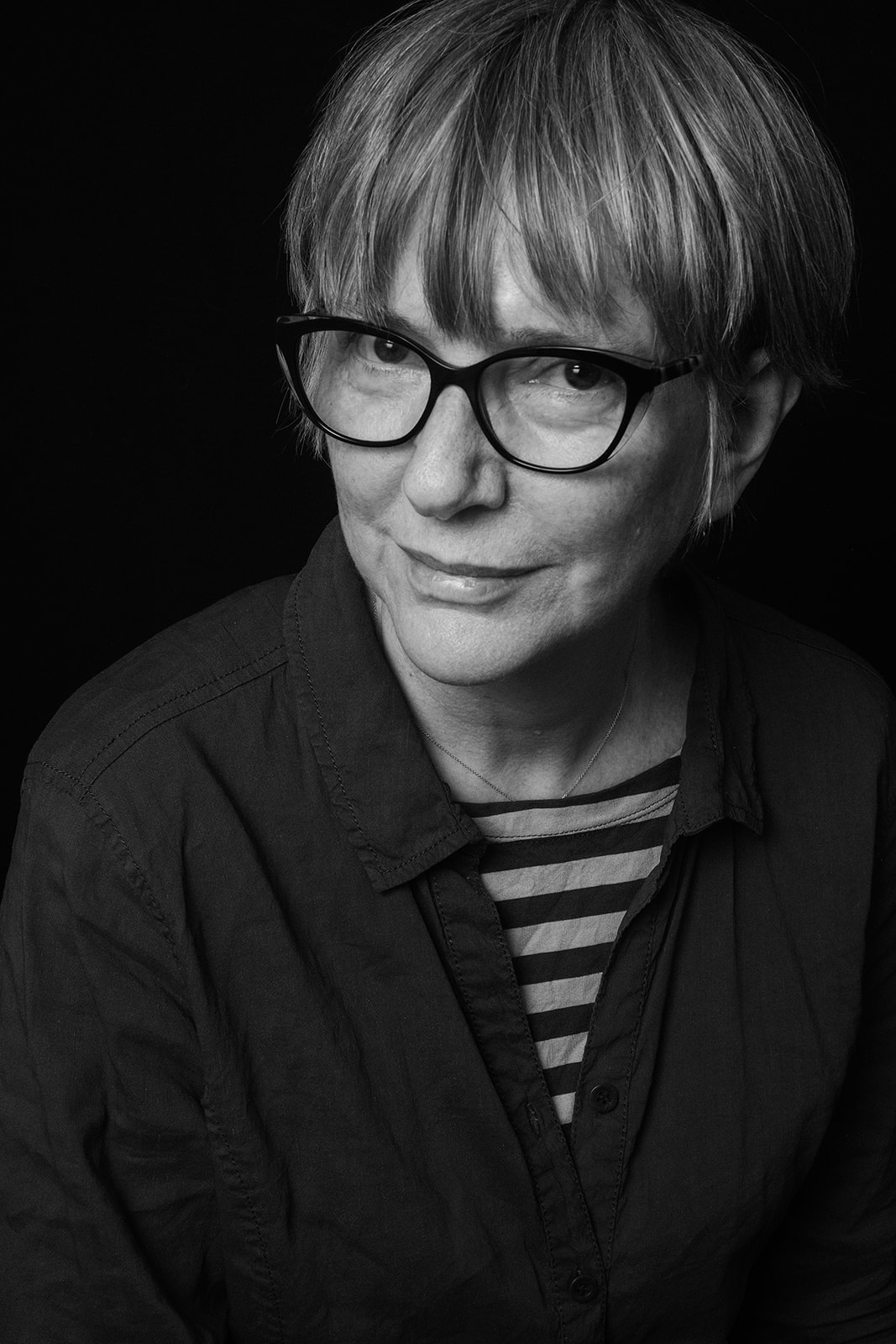 Shelley Stenhouse, a New York City-based poet and fiction writer, recently won the Palette Poetry Prize (judged by Edward Hirsch). Her collection, Impunity, was published by NYQ Books. She received a New York Foundation for the Arts Fellowship, an Allen Ginsberg Award, was a National Poetry Series finalist, and had two Pushcart Prize nominations (one by Tony Hoagland). Her work has appeared in New York Quarterly, Antioch Review, Prairie Schooner, Quarterly West, Nimrod, Margie, Third Coast, Brooklyn Rail, Washington Square, and Poetry After 9/11: An anthology of New York poets (among others).
Shelley Stenhouse, a New York City-based poet and fiction writer, recently won the Palette Poetry Prize (judged by Edward Hirsch). Her collection, Impunity, was published by NYQ Books. She received a New York Foundation for the Arts Fellowship, an Allen Ginsberg Award, was a National Poetry Series finalist, and had two Pushcart Prize nominations (one by Tony Hoagland). Her work has appeared in New York Quarterly, Antioch Review, Prairie Schooner, Quarterly West, Nimrod, Margie, Third Coast, Brooklyn Rail, Washington Square, and Poetry After 9/11: An anthology of New York poets (among others).
Shortlisted
Jill Van Epps
for ‘Pornwald’
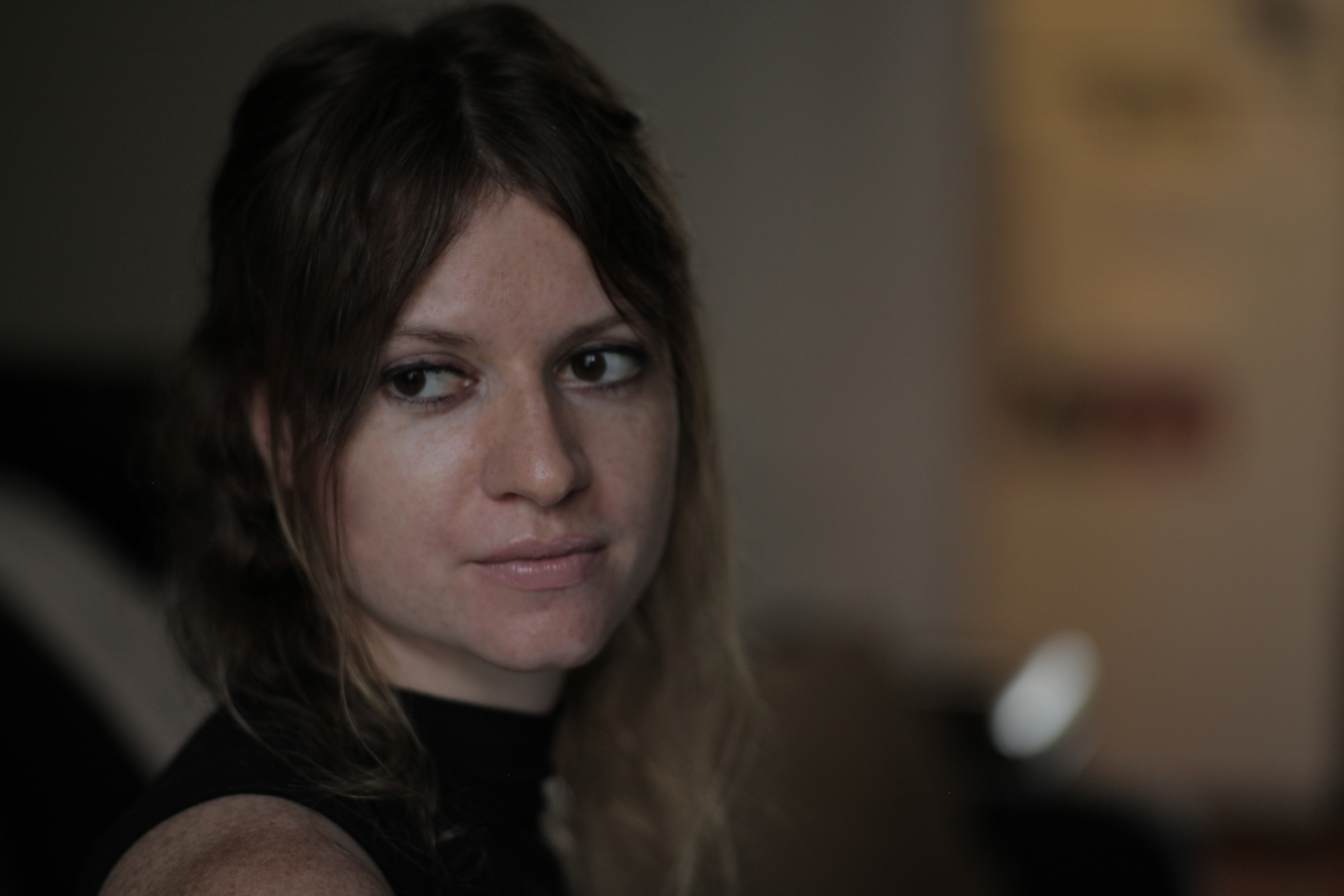 Jill Van Epps is a writer and filmmaker based in Brooklyn. She received her MFA in visual art from Goldsmiths College in London and studied video art in Berlin on a Fulbright fellowship. She was awarded the Margaret C. Annan Award for fiction and has had several poems published in journals, including The Pedestal Magazine, The Hiram Poetry Review, The Oyez Review, and Visions International. She is currently completing her first novel, Teenage Babylon.
Jill Van Epps is a writer and filmmaker based in Brooklyn. She received her MFA in visual art from Goldsmiths College in London and studied video art in Berlin on a Fulbright fellowship. She was awarded the Margaret C. Annan Award for fiction and has had several poems published in journals, including The Pedestal Magazine, The Hiram Poetry Review, The Oyez Review, and Visions International. She is currently completing her first novel, Teenage Babylon.
Full longlist
Deborah Callaghan (NSW) | Small Details of Travel
Lily Chan (Vic) | great flying soar and in command
Rhonda Collis (Canada) | Sage
Luca Demetriadi (Vic) | Olga’s AirPod
Dan Disney (South Korea) | what a what is (an autofiction)
Laura Elvery (QLD) | Transatlantic
Kerry Greer (WA) | First Snow
John Kinsella (WA) | Accordion to Bach
John Kinsella (WA) | Falling Up Stairs
Sam Reese (UK) | Softly, as in a Morning Sunrise
Faith Shearin (USA) | Natural Disasters
Shelley Stenhouse (USA) | M.
Jill Van Epps (USA) | Pornwald
Judges’ comments
There were more than 1,300 entries to this year’s Elizabeth Jolley Short Story Prize, which attracted writers from around the globe. The three judges were pleased to encounter a range of forms and genres, from literary realism to satire, speculative and historical fiction, dystopia, autofiction, and more experimental work. The stories explored themes of love, sex, and the pain of being alive, while many took an overtly political stance, addressing anxieties about climate change, social justice, and the rise of Artificial Intelligence.
The judges gravitated towards stories marked by an inventiveness of form and a distinctiveness of voice, stories that had something surprising to tell us and found imaginative ways of expressing ideas. The shortlisted stories negotiate the challenges of the form by skilfully combining brevity and depth, economy and resonance, offering refreshing perspectives on the world.
‘First Snow’ by Kerry Greer
‘First Snow’ subtly enacts a vulnerable young woman’s decision to leave her self-absorbed, manipulative partner, the father of her baby. Contrasting her banal relationship with a poetic response to the natural world and the enchantments of motherhood, the story reminds us that traditional domestic fiction, in the hands of an intelligent, empathic writer, can render the ‘ordinary’ both psychologically complex and deeply affecting.
‘M.’ by Shelley Stenhouse
In ‘M’, a middle-aged woman hooks up with a man whom she encounters through AA. Wittily told, this rollicking tale set in New York City is at once a character study of the garrulous oddball M and a tragicomic portrait of the narrator herself, whose compulsions and choices see her avoiding the everyday joys of her life as a mother.
‘Pornwald’ by Jill Van Epps
‘Pornwald’ is a puzzle that tests the limits of realism with an often riotously deadpan sense of humour. Characters move through a world that is superficially familiar, but as the story progresses, all may not be as it initially appears: this is an unpredictable place, wilder than the characters themselves realise. What would it mean, the story asks us to consider, if we were to wake up one day to our own unreality?
ABR warmly acknowledges the generous support of ABR Patron Ian Dickson, who makes the Jolley Prize possible in this lucrative form. We congratulate all the longlisted and shortlisted authors.
Previous winners
Subscribers to ABR can read previous prize-winning stories to the Jolley Prize. To read these stories, click here.
If you aren't a subscriber, digital subscriptions begin at only $10 per month. Click here to become an ABR subscriber.
2025 Peter Porter Poetry Prize
The 2025 Peter Porter Poetry Prize shortlist
Australian Book Review is delighted to announce the shortlist and longlist for the 2025 Peter Porter Poetry Prize, as selected by judges Sarah Holland-Batt, Paul Kane, and Peter Rose. The shortlisted poems appear in the January-February issue, which can be purchased here. The winner will be announced at a ceremony in Melbourne in February (details will be available here in early January). Now in its twenty-first year, the 2025 Porter Prize attracted 1,171 entries from twenty-nine countries. The Porter Prize is one of Australia’s most lucrative and respected poetry awards. It honours the life and work of the great Australian poet Peter Porter (1929–2010), a contributor to ABR for many years.
Status: Closed, shortlist announced. The winner will be announced at a ceremony on 18 February 2025 in Melbourne. Details can be found here.
First prize: AU$6,000
Four other shortlisted poets: AU$1,000
Dates: Opened 1 July and closed 7 October 2024
Judges: Sarah Holland-Batt, Paul Kane, Peter Rose
The judges said this of the five shortlisted poems:
‘The Orphan’ by Sarah Day
‘The Orphan’ describes a stone sculpture of almost heartbreaking poignancy in which an old couple help a female goat suckle an orphaned child. Cast unobtrusively in the poetic form of a sestina, this subtly ekphrastic poem offers an image of care, concern, and wholeness that ought to be an emblem of our times.‘Hook, Grandmother, Line, Marlin’ by Jennifer Harrison
‘Hook, Grandmother, Line, Marlin’ is an energetic, musically dextrous sonnet sequence that unites the personal and the ecological in a surprising meditation on fishing and loss, that ‘monstrous / edge between omnipotence and death’. The poet’s expert control of rhythm, image, and the poetic line generates a thrilling chase of language that upends expectations of the elegy.‘Notes from a Room’ by Audrey Molloy
‘Notes from a Room’ is an elegant, finely achieved sestina that expertly wields the form’s complexity to achieve subtle, condensed effects in a poem that explores the way music resonates and carries through walls and time. Beginning with a domestic and interior scene, the poem expands into a moment of tangential connection with the outside world through its ‘perfect hum’ of images and sound.‘Moths That Fly by Night’ by Claire Potter
‘Moths that Fly by Night’ draws the reader into a quiet scene in an empty room that is nonetheless filled with reflected light and personal reflections that deepen into a meditation on time and memory as, outside, moths flutter at the window trying to reach the interior light. With rich and precise detail, the poem unfolds a drama that is naturalistic but also uncanny.‘The Vastness of What Poetry Can Do’ by Meredith Stricker
That this is the most expansive poem on the shortlist seems inevitable, given its titular subject: ‘The Vastness of What Poetry Can Do’. The five eclectic epigraphs (beginning with Wallace Stevens, who might have conceived the title), and the references throughout, hint at the poet’s impressive range of influences, but this spacious and elegant poem – ‘stubborn, forlorn, resplendent’ – is entirely individual and original.
The judges said this of the overall field:
This year’s Peter Porter Poetry Prize attracted just under twelve hundred poems from twenty-nine different countries. This attests to the global reach and influence of the prize, now in its twenty-first year. As always, the field was multifarious, reflecting the variety and inventiveness of contemporary poetry, from the lyric to prose poems. The subjects, the impulses, the intentions were similarly various. There were poems about health, family, mortality, nature, travel, and overcoming. The immense challenges facing humanity – from the climate crisis and the rise of despotism to conflicts in Ukraine and the Middle East – sparked poems. We were impressed by the technical ingenuity of many of the poems from which we drew the longlist. Peter Porter himself would have relished the abundance of sonnets, villanelles, pantoums, sestinas, and ekphrastic poems. We thank all of this year’s entrants, and we commend the shortlisted poems to readers.
The longlist for the 2025 Porter Prize is as follows (in alphabetical order by poet):
Sarah Day (Tas) | The Orphan
Liam Ferney (QLD) | Eroica
Jennifer Harrison (Vic) | Hook, Grandmother, Line, Marlin
Paul Hetherington (ACT) | River
Jennifer Kornberger (WA) | The Jeweller’s Loupe
Julie Manning (QLD) | The Realms of the Unreal
Audrey Molloy (NSW) | Notes from a Room
Claire Potter (NSW) | Moths That Fly By Night
Meredith Stricker (USA) | The Vastness of What Poetry Can Do
Dolores Walshe (Ireland) | In the Garden
More information about the shortlisted poets can be found below.
The 2025 Porter Prize shortlist
‘The Orphan’ by Sarah Day
Sarah Day’s books have won awards, including the Queensland Premier’s and ACT poetry prizes. Her books have also been shortlisted for the NSW, Tasmanian Premier’s, and Prime Minister’s Literary Awards. In 2017 she received the Alan Marshall short story prize. She has collaborated with musicians in the United Kingdom and Australia, judged national poetry, fiction, and nature-writing competitions, and taught creative writing to Year Twelve students for twenty years. Her ninth collection, Slack Tide (Pitt Street Poetry), was published in 2022.
‘Hook, Grandmother, Line, Marlin’ by Jennifer Harrison
Jennifer Harrison has written eight books of poetry, most recently Anywhy (Black Pepper, 2018). Two new collections, Sideshow History and Finals, are forthcoming in 2025. She is Chair of the World Psychiatry Association’s Section for Art and Psychiatry and won the 2023 Troubadour International Poetry Prize.
‘Notes from a Room’ by Audrey Molloy
Audrey Molloy grew up in Ireland and has lived in Sydney since 1998. Her début collection, The Important Things (The Gallery Press, 2021), won the Anne Elder Award and was shortlisted for the Seamus Heaney First Collection Poetry Prize. The Blue Cocktail was published by both The Gallery Press and Pitt Street Poetry in 2023. She has an MA in Creative Writing from Manchester Metropolitan University. She was awarded a Varuna Residential Fellowship in 2020 and is the grateful recipient of a Literature Bursary Award from The Arts Council of Ireland.
‘Moths That Fly by Night’ by Claire Potter
Claire Potter is author of four poetry collections, Acanthus (Giramondo 2022), Swallow (Five Islands 2010), N’ombre (Vagabond 2007), and In Front of a Comma (Poets Union 2006), as well as numerous essays and translations. Her writing has been published in Poetry Chicago, London Review of Books, New York Review of Books, Best Australian Poems, New Statesman, Meanjin, Australian Book Review, and Poetry Ireland Review among others, translated into Chinese and French, and shortlisted for the NSW Premier’s Literary Award, the ACT Premier’s Literary Award, the Victorian Premier’s Literary Award, the Michael Wesley Wright Poetry Award, and the Helen Anne Bell Poetry Award. She studied English at the Universities of Western Australia and NSW, and holds a Masters in Psychoanalysis from Université Paris VII and Psychoanalytic Infant Studies from the Tavistock Institute. She lives between Sydney and London, where she teaches at the Architectural Association.
‘The Vastness of What Poetry Can Do’ by Meredith Stricker
Working in cross-genre art, Meredith Stricker is the author of six poetry collections and a recipient of the National Poetry Series Award. She co-directs Visual Poetry Studio, a collaborative that focuses on architecture in Big Sur on California’s central coast, along with projects to bring together artists, writers, musicians and experimental forms. A new collection, Sentience, is forthcoming from Omnidawn Press. Other books include Rewild, awarded the Dorset Prize from Tupelo Press; Our Animal, winner of the Omnidawn Open Book Competition; Alphabet Theater, mixed-media performance poetry from Wesleyan University Press; Tenderness Shore, L.S.U. Press for the National Poetry Series Award; mistake, from Caketrain Press; and anemochore, winner of the Gloria Anzaldúa Prize from Newfound Press and finalist for the Poetry Society of America Four Quartets Award. Her poetry and art have appeared in performance and gallery spaces and in numerous publications including: Conjunctions, Boston Review, Tupelo Quarterly, Best American Experimental Writing.
More information
Click here for more information about past winners and to read their poems.
Please read our Terms and Conditions and Frequently Asked Questions.
The Peter Porter Poetry Prize is funded by the ABR Patrons, including support in memory of Kate Boyce.



